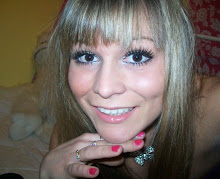
‘Man is born free, yet he is everywhere in chains’
‘To know one’s chains for what they are is better than to deck them with flowers.’
/Rousseau/
Romanticism has very little to do with things popularly thought of as "romantic," although love may occasionally be the subject of Romantic art and poetry. It is rather an international artistic and philosophical movement that redefined the fundamental ways in which people in Western cultures thought about themselves and about their world. The main aspects of Romantic age were freedom, equality and socialism. It states an idea of recreation against the Enlightenment where uniqueness of individual was established and beliefs in supremacy of emotions were very important.
Rousseau makes it explicitly clear in his writings, “The Social Contract and Discourses” that he believes strongly in personal freedom and autonomy. Rousseau believed that a truly free government is one where everyone votes, every citizen. Rousseau argues that by everyone surrendering his or her rights to the sovereign equally they maintain freedom. He believes man has the most freedom in the state of nature, but because man has the ability to rationalize and the desire to be social, he must enter a social contract with others in order to have a free and equal society.
Aristotle and Hobbs, believed that no men are by no means equal naturally, because some of them are born for slavery. This contrasts Rousseau’s views. He argues in a chapter ‘Slavery’ that all men are naturally free and nobody should be authorized to have power over another human being, he says ‘No man has a natural authority over his fellow’. This, however, matches up to John Lock’s Natural Rights, in some way.
I think the most interesting thing I observed in his book is that he views family as the most ancient and natural society. He argues that until children need their parents, the bond between them in strong. But nothing can be changed when children desire independence and they leave to find their own way. He says’ Even if he could alienate himself, he could not alienate his children’. His idea of freedom is expressed in a clear way. He explains that even if they are your children, they are still free and you can’t own their liberty.
Let’s be free.










This is a really good article and you make very good points. Your writing flows very well.
ReplyDelete